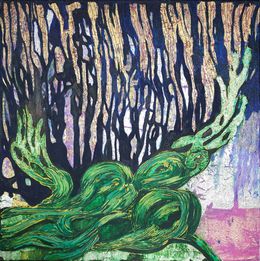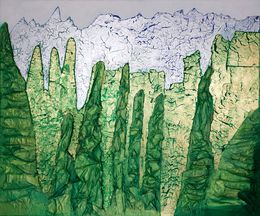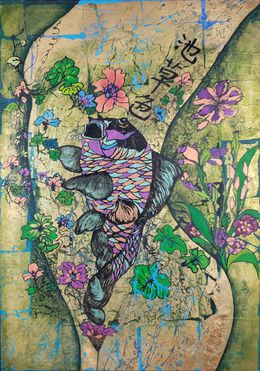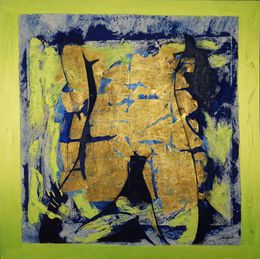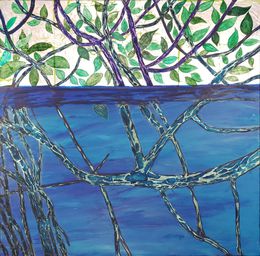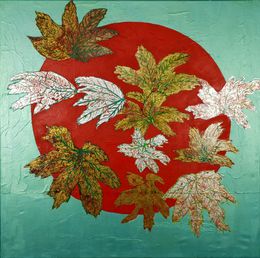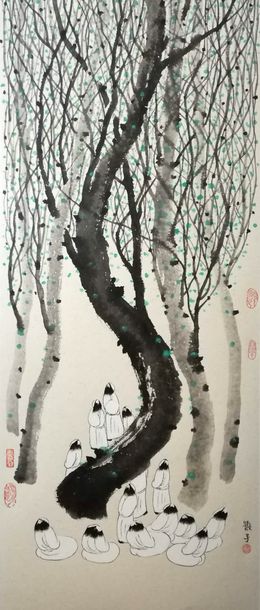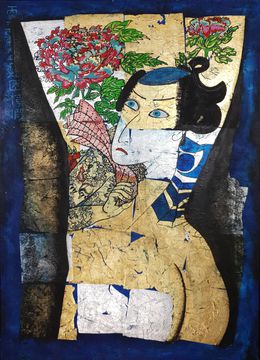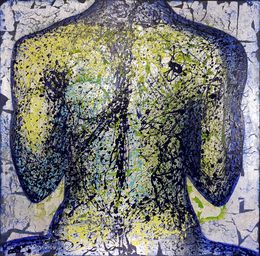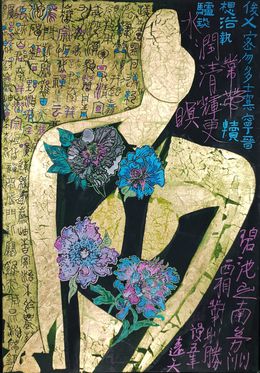
Japanese-Inspired Flowers
From the cherry blossoms of Kyoto to the art of Ikebana, flowers in Japanese culture have deep symbolic meaning often reminding those who interact with them that we are all a part of nature. Whether it is interacting with the wildness of nature or depicting the more strained cultural significance of flower arranging, the subject itself inspires not just artists of Japan but beyond. In the history of Japanese art, the Edo period is by far the most famous amongst Western countries. The development of the pictorial movement of the Ukiyo-e (or ‘images of the floating world’) and its prints spread throughout Europe thanks to the artist, Katsushika Hokusai (1760-1849.) The flowers that dot ukiyo-e works even strongly influenced Vincent Van Gogh when he painted Iris (1889), full of sweetness and dynamism. By the 1990s, the West had a tendency to reduce contemporary Japanese art to the ‘Superflat’ movement, a term popularized by one of the major figures in the country’s art scene, Takashi Murakami. Known for his colorful and floral paintings and inspired by Japanese pop culture, the influence of some of his work is still seen in today’s Hiran Mitra or Jeong Min Lee - both of which can be found here on Artsper.
